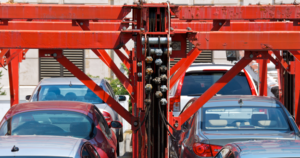Looking for a gas heating engineer near me? Ask the right questions to ensure safety, quality, and professionalism when hiring a gas engineer for your home or business.
When it comes to maintaining the safety and efficiency of your home or business, having a qualified gas heating engineer near me is crucial. Natural gas serves as an efficient and potent energy source that,when managed incorrectly, can present significant dangers, including carbon monoxide poisoning, fires, and even explosions.
Hiring the right gas engineer not ensures that your gas appliances are properly installed and well-maintained safely but it also ensures that your property complies with local regulations and safety standards.
If you’re looking for a gas-safe engineer in Portsmouth, asking the right questions is key to finding a reliable professional who is trained and certified to handle gas systems. Whether you’re dealing with a gas boiler installation, routine maintenance, or an emergency repair, selecting an engineer who has the proper qualifications, licensing, and insurance will provide peace of mind that your gas system is in capable hands.
This guide highlights the essential questions to consider when selecting a gas heating engineer, helping you make an informed choice to safeguard your property and loved ones.
Qualifications
DIY can be tempting when it comes to home repairs, but natural gas lines and appliances should always be left to professionals. Not only are these projects highly specialized, but they may be risky. Therefore, finding a qualified heating and gas engineer who has passed an examination to do the job safely and effectively is key.
A qualified heating and gas engineer needs to hold registration with the Gas Safe Register and hold a valid work qualification card before beginning this work.
Gas engineers specialize in inspecting, maintaining, and repairing gas systems and appliances in both residential and commercial settings for both residents and business clients. Utilizing various tools and equipment, they are used to troubleshoot issues quickly while replacing parts if necessary and enforcing safety protocols. A bachelor’s degree in mechanical engineering could be required in some states for this job role.
Plumbers and gas engineers are two distinct professions, although their roles may overlap in certain instances. A gas engineer typically specializes in gas appliances. At the same time, plumbers tend to specialize in plumbing, specifically installing, fixing, and maintaining domestic appliances, installing drainage and sewerage systems, fitting thermostatic radiator valves, or installing towel rails. Some also choose to specialize in certain areas of plumbing.
Licensing
Licensure of professional engineers is essential to their practice, not only as a legal formality but also to safeguard quality workmanship and protect consumers from shoddy work or the risk of gas leakage.
Engineers seeking licensure must meet education, examination, and experience criteria as outlined by Section 7206 of New York’s Education Law. Furthermore, engineers working in certain settings may be exempt from licensing requirements under Section 7208.
All applicants must submit Form 1 with an application fee covering both licensure and first registration. Those who successfully pass the licensure exam will receive both licenses and registration certificates; those who fail are eligible to reapply in six months.
License holders working on gas systems in New York City must always carry and present upon request their Department-issued Gas Work Qualification Card to authorized enforcement officers as proof of licensure, as well as present photo identification to anyone asking.
Anyone without an appropriate card or identification should cease all gas work immediately; doing otherwise violates Local Law 152, which exists to ensure the safety of buildings and residents alike in NYC.
Insurance

No matter if they specialize in heating systems, appliances, or plumbing, gas engineers should carry Suitable insurance to safeguard both themselves and their customers from financial loss in case of accidents or injury. Depending on their field of work, insurance policies for gas engineers could include public liability, professional indemnity, and tools coverage.
Gas engineering careers can be both fulfilling and challenging. Working on gas systems is potentially hazardous; mistakes could lead to fires, explosions, or carbon monoxide poisoning. Qualified gas engineers need the technical know-how and customer service expertise necessary to solve issues efficiently and safely in people’s homes quickly. Customer service skills may also come in handy here.
Beginning a career as a gas engineer requires extensive training. Specifics will depend on your chosen training program; typically, it includes certification in gas safety as well as coursework on specific appliances and systems. Some programs provide apprenticeship or trainee positions that offer both on-the-job experience and classroom instruction.
If you’re curious about becoming one, reach out to local colleges or employers or utilize online resources available to learn more about the qualifications and requirements for becoming one.
Reputation
Many people mistakenly assume that gas engineers and plumbers perform similar services; this assumption couldn’t be further from the truth. Both professionals offer different skill sets; choosing which engineer you hire depends on the task at hand and will save both time and money in the process.
When seeking quotes, be sure to provide as much detail about your problem or project as possible in order to receive accurate quotes without paying for unnecessary services.
Before hiring a gas heating engineer, ensure they are registered with the Gas Safe Register. This certification ensures they are qualified and competent to handle gas appliances in a safe and efficient manner To verify an engineer’s credentials, you can search online or request their ID card, which contains details regarding qualifications and approved areas of work.
Becoming a Gas Engineer might seem like an impossible goal for some, but it is actually very attainable. There are multiple pathways to certification, such as studying in a degree course or undertaking an apprenticeship program; both options offer stable careers with opportunities for growth. With hard work and commitment, newcomers can even become fully qualified within one year.
Conclusion

Finding a qualified gas heating engineer near me is vital for preserving the safety and functionality of your home’s heating system. By asking the right questions, verifying qualifications, by verifying proper licensing and insurance, you can ensure ensure you hire a reliable, safe, and professional gas-safe engineer in Portsmouth. Whether it’s routine maintenance or urgent repair, it’s crucial to choose a gas engineer who has the right skills and certifications. If you’re unsure where to start, consider asking for recommendations or looking up reviews of certified engineers.
If you’re planning to learn more about gas heating engineers and the steps to hire the right professional, you can watch helpful tips on YouTube or add to Pinterest and WordPress for future reference.









+ There are no comments
Add yours